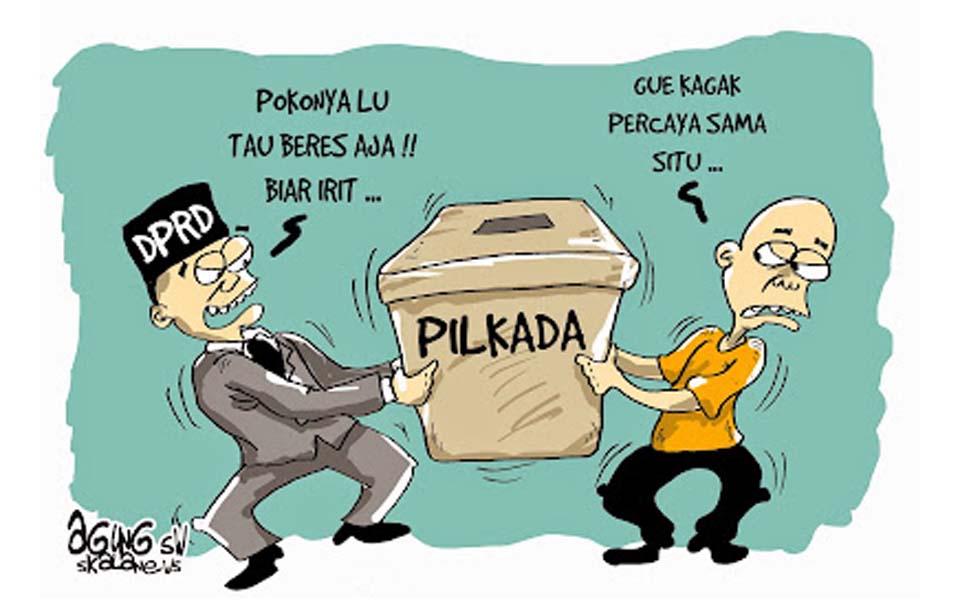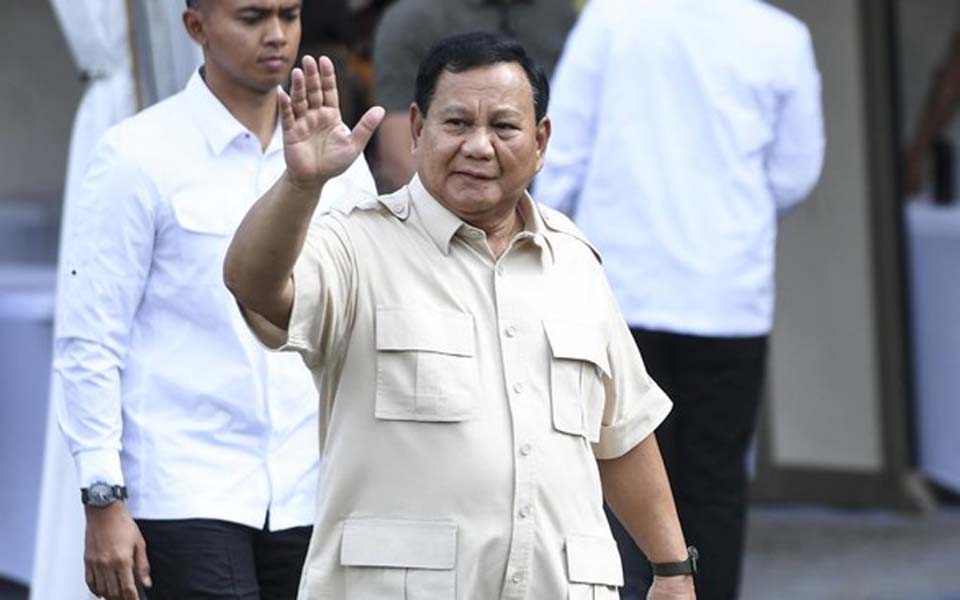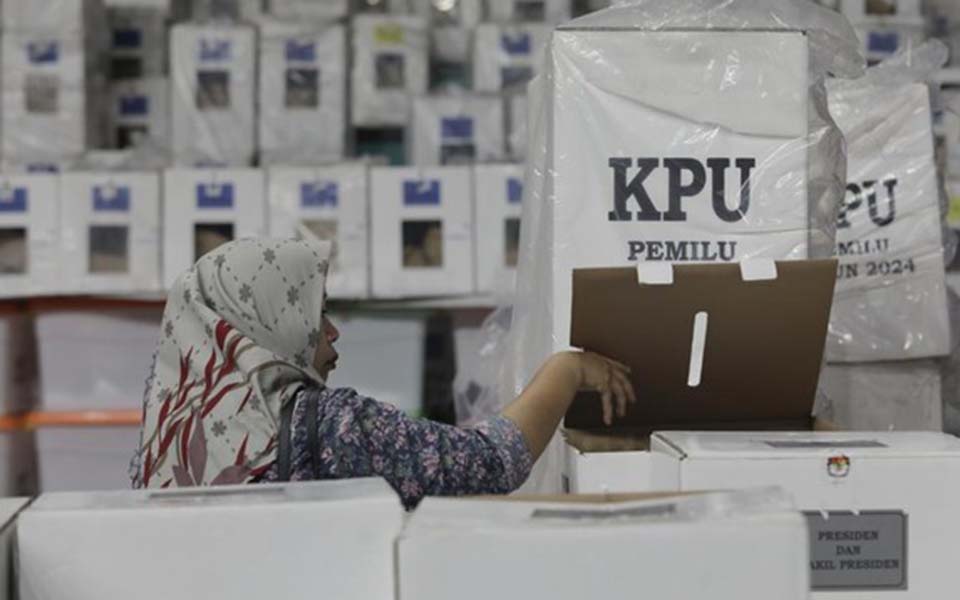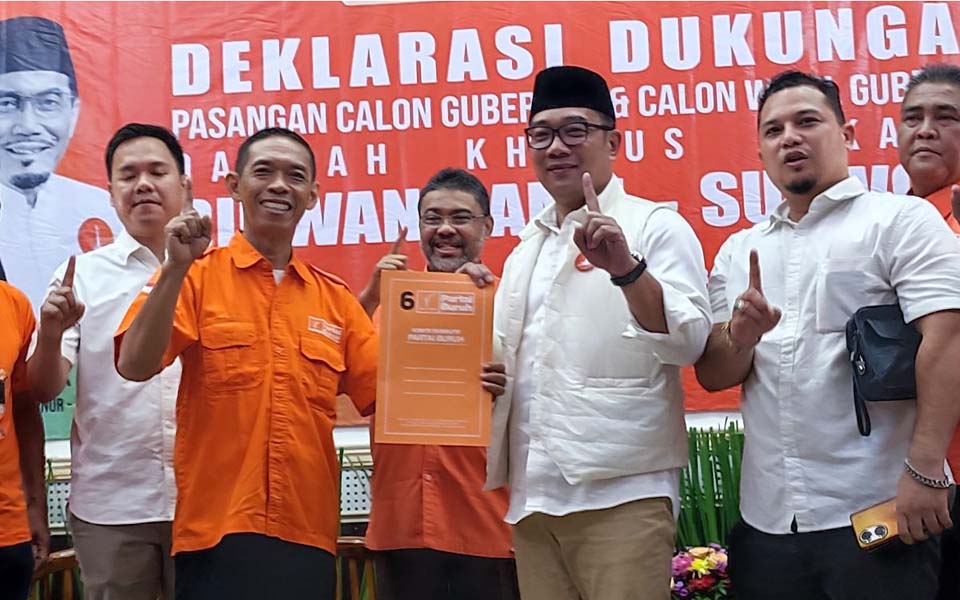Susie Berindra and Sidik Ramono – The government wants to strengthen the presidential system by simplifying the multi-party system. The big political parties want to have businesses to increase party funds. The new political parties want to take part in the 2009 general elections. What should be done to bridge all of these wishes?
Last week, the Department of Home Affairs held a public consultation on proposals for four draft laws on political affairs. All of the political parties of course enthusiastically went along to the event. For the first time, the new draft law on the 2009 general elections was revealed to the public. The Department of Home Affairs also used the opportunity to elaborate on the gist of its thinking on the four draft laws on political affairs.
The public consultation, which was held at the offices of the Department of Home Affairs, did indeed feel “alive”. This could be seen from the diversity of proposals and views expressed by politicians as well other that were present. Twenty-four representatives from parties that participated in the 2004 general elections and 45 new political party leaders attended the meeting.
Tightening up the rules
A number of things have been changed in the proposed Draft Law on Political Parties compared with Law Number 31/2002 on Political Parties. It is safe to say that if the draft makes it though and is ratified, the rules for the establishment of political parties will be even tighter. For example, one of the requirements in the proposed draft for establishing a new political party is that it must have 100 people, previously only 50 people were required.
The requirement on the distribution of branch management boards has also being increased. New political parties must have management boards in 66 percent of the provinces access the country, 75 percent of all regencies/municipalities and 50 percent of all sub-districts. Previously, under Law Number 31/2002 Article 2 Paragraph 4(b) it stipulated that political parties must have management boards in 50 percent of the country’s provinces, 50 percent of all regencies/municipalities and 25 present of all sub-districts.
There is another requirement that may also make those wishing to establish a political party think again. A new political party must have as much as 5 billion rupiah (almost 5 million US) deposited in a state-owned bank. Prior to this, there was no requirement in the old law regarding the amount of money owned by a political party.
The stipulation of 5 billion is actually different from the initial draft. In the initial draft that was received previously by Kompas, Article 5 Paragraph 2(a) stated that in order to be validated as a legal entity, a political party must prove that it has deposits of at least 500 billion rupiah at the time of its establishment.
The other outstanding difference in the proposed draft is that political parties are no longer prohibited from establishing party owned business enterprises. The reason given being the need for parties to be self-sufficient and reduce the parties’ dependence on the government and public. In Law Number 31/2002, political parties were prohibited from establishing business enterprises or holding shares in a company.
The secretary general of the Crescent Star Party (PBB) Yasin Ardi said he disagreed with the proposal that 5 billion rupiah must be deposited as a requirement for the establishment of a political party. According to Ardi, in order to move towards political parties that are of a high quality and self-sufficient, it is not the requirement on money that should be increased, but rather a requirement that a political party’s membership must be larger.
The deputy general secretary of the Reform Star Party (PBR) Yusuf Lakaseng meanwhile expressed the view that the education level requirement should not something absolute for politicians. The level of political education does not necessary indicate the quality of a politician, rather what important is their organisational experience. “Don’t let the government regulate this excessively”, he said.
The People’s Conscience Party (Hanura) that was established by former Indonesian military (TNI) chief Wiranto, as a new political party, also spoke up. Hanura general secretary Yus Usman said that the size of members’ contributions should not be restricted if financial assistance from the state budget is to be abolished. “Political party members [should] be able to donate however much, as long as it is legitimate. As for assistance for political parties from the state budget just get rid of it, because it only benefits the big political parties”, he said.
The executive director of Cetro (Center for Electoral Reform), Hadar N Gumay said that tightening up the requirements on the establishment of a political party is unnecessary and will only lead to the killing off of alternative political parties that might emerge in the future.
Gumay sees the Department of Home Affair’s proposed draft law as only protecting the currently existing political parties so that they will not face any new competitors. “In truth the previous rules were quite good, in fact it has already reduced the number of political parties that took part in the 2004 general elections compared with the 1999 general elections”, he said.
Conversely, Sudarsono Hardjosoekarto, the director general National Unity and Politics at the Department of Home Affairs said that in comparison with the previous law, there are actually not very may changes in the proposed draft laws. All of the requirements are designed so that political parties must become the “backbone” of the running of the country, not just parties with a nameplate. Also not parties that just appear in the lead up to the elections.
Why should political parties have to have and deposit 5 billion rupiah? According to Hardjosoekarto, a political party needs funds to run its management boards from the national down to the lowest level offices saying there are some political parties that need operational funds of 3 billion rupiah per month. “This is so that political parties exist to serve the public. At the very least, the public will know that the political party has money. Likewise, the requirement on the coverage of political party management boards and the 5 billion rupiah are related. In order to organise management boards down to the lowest level of course it need money”, he said.
While on the one hand the rules are tighter, there are also provisions that are felt to be too loose. For example, the provision that political parties be allowed to own a business. According to the chairperson of the Elections and Democracy League (Perludem), Didik Supriyanto, even without having a business enterprise, political parties can play around with other parties.
“This provision will later be able to open up the space for political parties to ‘play around’ with other parties. It would be better to regulate the financial responsibility of political parties in an accountable manner”, said Supriyanto.
Quality political parties
A survey conducted by Litbang Kompas in early March indicated that that the public still has a negative view of the performance of the political parties, particularly in relation to responding to the people’s political aspirations. Only around one quarter of respondents (out of 650) said that the political parties’ image and performance was good. Around 60 percent of respondents still viewed it as poor.
In a number of important cases, the public sees that it easy to guess how legislators in the House of Representatives (DPR) will eventually vote, it will be based on the interests and position of the political parties. Will the performance of the political parties continued to be viewed in a poor light? Our hope is of course, no.
Returning to the public consultation, when discussion was opened up the chair of the Golkar Party’s central leadership board, Andi Mattalatta, was given the first opportunity to express his views. Appearing as if he did not wish to loose the opportunity, he spoke at some length. What he said of course was certain to those things that would benefit the party with the symbol of the banyan tree.
On several occasions, his proposals were greeted with shouts of “huuu...” from participants, some of whom came from the new political parties. There was even one participant that raised their hand to request an interruption and asked the moderator to stop Matelote’s from speaking.
Mattalatta said he welcomed the Department of Home Affairs proposed draft laws on political parties. He emphasised three issues, strong political parties, strong institutional symbols and intelligent inter-institutional relationships. “It is time for the political parties that nominate [candidates for] the presidency and regional head to be of quality”, he said.
What Mattalatta meant by quality political parties are those that can meet specific educational requirements for party leaders and a membership size that could be a thousandth of the political party’s initial capital (5 billion rupiah).
In addition to this, he also proposed the possibility of allowing cooperation between the political parties and state civil servants. “Particular civil servants need political experience. So, enable civil servants to be able undergo an apprentice in a political party. Likewise enable them to return to being civil servants. This could also intellectually develop the political parties”, he said.
Will then the performance of the political parties remain poor forever? Of course, we want political parties that also play a crucial role in the republic to improve and improve again.
But can this become a reality through the regulations on political parties? Let’s just wait for the outcome of the deliberations on the proposed draft law at the DPR. Hopefully what comes out of these deliberations will not merely be in the interests of the political parties, but also in the interests of the ordinary people. Because, up until now the interests of the ordinary people have often been forgotten.
[Translated by James Balowski.]















